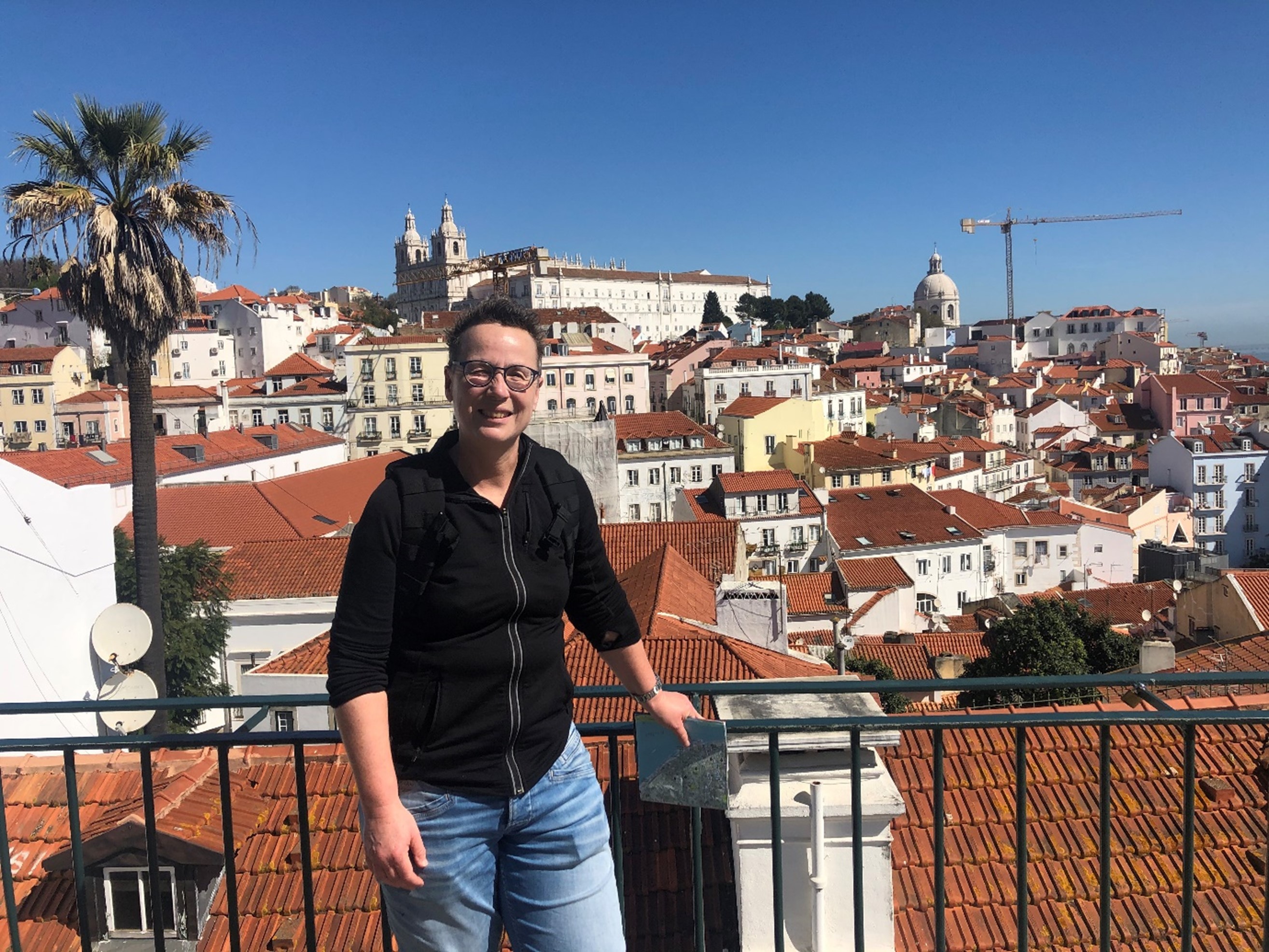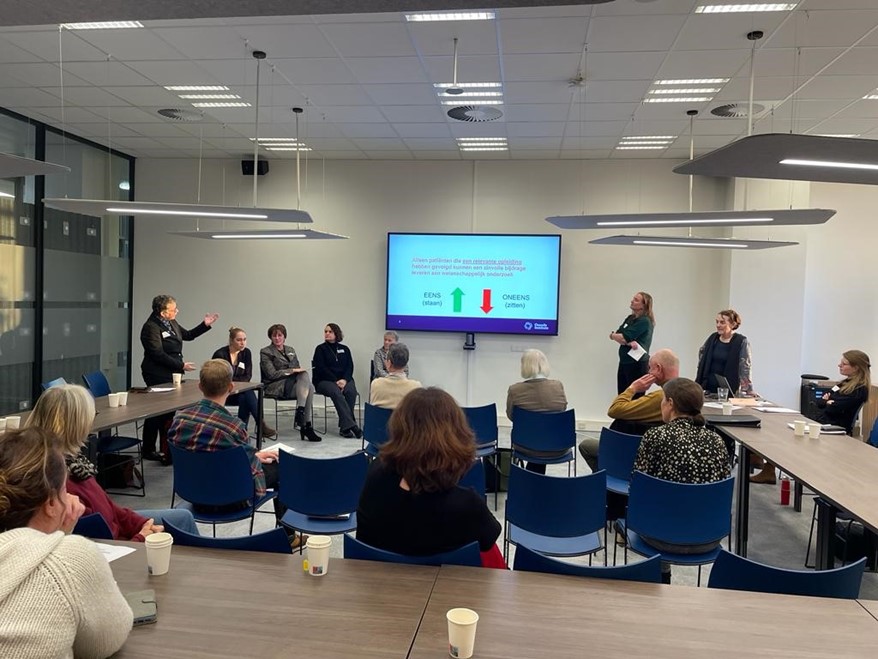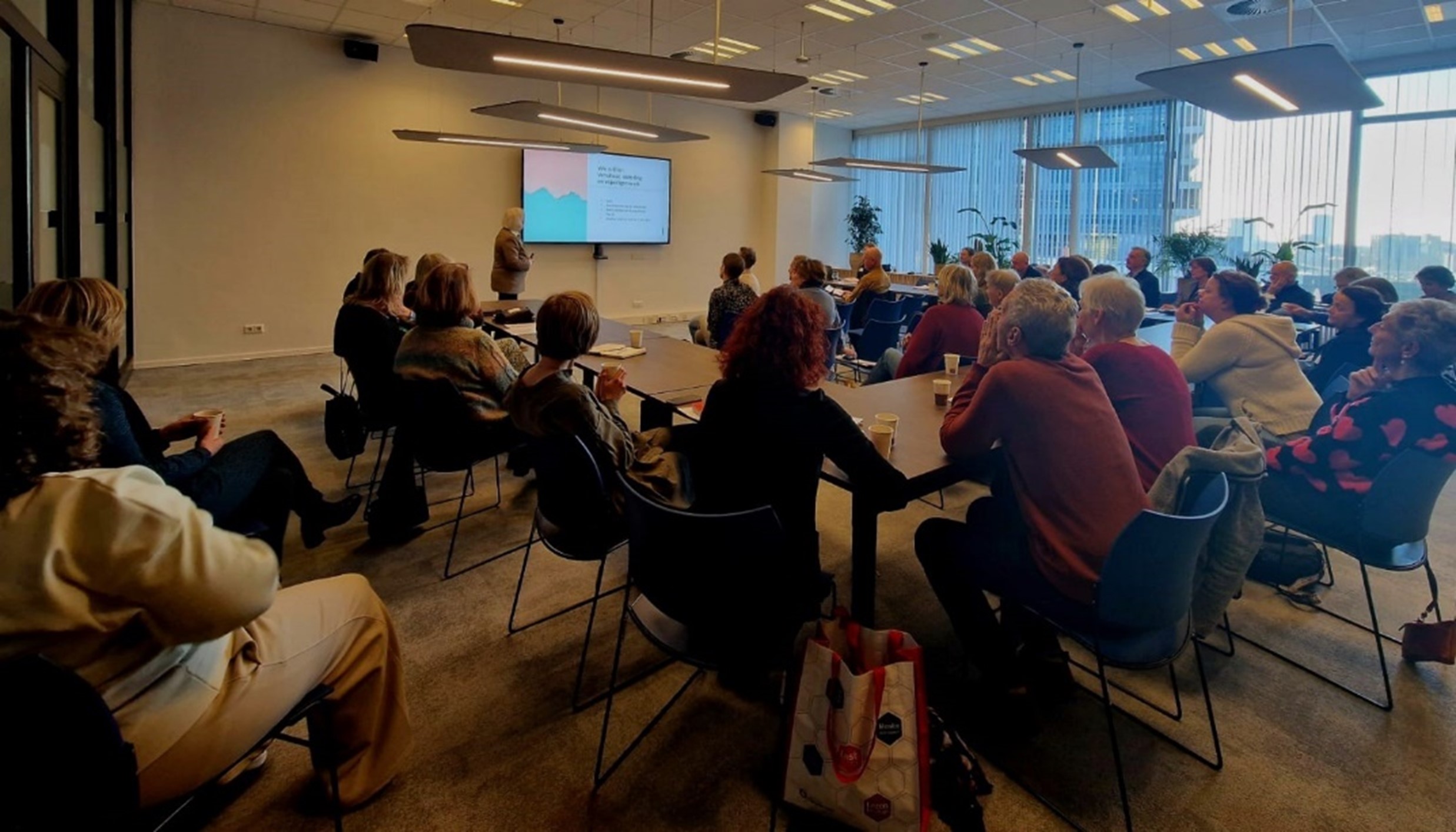Every year, the Breast Cancer Research Group (BOOG) and Breast Cancer Society Netherlands (BVN) organise a Patient Advisory Group (PAG) meeting. During this meeting, a number of patient representatives advise BOOG researchers on their clinical breast cancer research.
Author: Carolien Hovenier - Patient partner Oncode Institute
This time, the meeting took place at Oncode Institute in the presence of several Oncode researchers and patient partners of the Oncode Patient Perspective Programme. Patients were updated on the latest developments in breast cancer research, while researchers heard how they can enrich research with patient participation.
With the Oncode Patient Perspective Programme, Oncode Institute aims to bridge the gap between basic research and patients. Programme manager Colette ten Hove explained that within this programme, (former) patients and/or parents of a minor child with cancer are given the opportunity to experience how scientists search for answers. Patients are matched with an Oncode researcher or research team, engaging in the day-to-day activities of basic research several times throughout the year. The personal experiences and critical questions of the patient contribute to the mindset of Oncode researchers and directly or indirectly lead them to new ideas. Patient partners also collaborate on research projects with Oncode research teams.
BOOG study centre initiates and facilitates clinical breast cancer research by setting up and conducting (inter)national studies. This is done in consultation with PAG patients. Director Elise van Leeuwen-Stok explained that the study centre also uses translational research.

That patient representatives of the PAG are not idle is evident by the number of clinical research projects they reviewed last year. There were 234, explained Marjolein Scholten of BVN. Using a fixed checklist - developed in cooperation with BOOG - patients assess, among other things, the relevance of the research question, study design, feasibility and burden on patients, patient-relevant endpoints and the readability of the patient information (PIF). A number of patients were also active as patient partners in 12 research projects, participating in these studies throughout their duration.
Role of patients in research
Ellen Verschuur explained what this entails concretely. She participated as a patient representative in the international DCIS studies Lord (reducing overtreatment of DCIS) and Precision, in which Ellen collaborated, among others, with Oncode researcher Stefan Hutten (Jos Jonkers group). Stefan, in collaboration with researchers from Cancer Research UK, is investigating how to determine whether DCIS abnormalities have a high or low chance of developing into malignant breast cancer.
Together with several other patient representatives, Ellen was involved in setting up focus groups with patients, provided input on the study protocol, and drafted the informed consent letter. During the course of Precision, patient representatives advised on the progress of the study and promoted the research widely through means such as a video production and social media. Ellen and her colleagues also co-authored various sub-studies.
Not all patients need to be as extensively involved as Ellen; using an overview, Ellen demonstrated that patients can have various roles. From consulting and advising to co-production and co-decision-making, where the patient and researcher are equal partners.

Weather Predictions
Several Oncode researchers presented exciting projects, thanks to which breast cancer treatment may be improved in the future. Let's continue with DCIS. Inspired by the way weather predictions are made, Ester Lips (researcher in the Jelle Wesseling group; NKI-AvL) explored whether similar methods could be applied to predict the course of DCIS and determine the necessity of treatment based on that. The combination of historical and recent weather data with AI makes weather predictions very accurate. The group led by Jelle Wesseling combines historical DCIS data with real-world data, AI, costs, and patient preferences. Patients are offered training as co-researchers so they can provide well-prepared input on datasets, questionnaires, and the implementation of this research.
Smart Immune Cells
In addition to traditional cancer treatment methods such as chemotherapy and radiation, immunotherapy is in the spotlight, including for breast cancer. Antoinette van Weverwijk (De Visser group) demonstrated that immune cells can not only eliminate breast cancer cells but may also stimulate cancer growth. The De Visser group specifically studies the role of eosinophils. Not every patient has these immune cells in their tumor, which may affect the effectiveness of chemotherapy and immunotherapy. Another approach is targeted therapy, which is also under extensive research. PARP inhibitors are available for certain types of breast and ovarian cancer, but resistance can develop over time. The group led by Sylvie Noordermeer is developing a substance that targets the Exo1 gene, potentially offering a different way to inhibit hereditary breast and ovarian cancer compared to PARP inhibitors.

Dialogue
The meeting concluded with a dialogue between patients, researchers, and the public, who shared their opinions on various statements. Should patient involvement always be the norm in scientific research, for example? According to some scientists, not always, as certain projects are still far removed from the patient. However, some patients argued: eventually, those research results will be further developed to be closer to the patient, so participation is always meaningful. Can only patients with relevant education make meaningful contributions to scientific research? The majority disagreed, stating that being a scientist is not necessary; what matters is the patient's experience. And should studies on breast cancer screening involve ordinary patients or only patient organizations? The Breast Cancer Association can address both concerns, as it not only has dedicated patient representatives but also a professional means to gauge the opinions of ordinary patients (B-force).
Participants reflected on a successful day, where it became evident that patient input is not only necessary for good, patient-centered studies but also for a fruitful interaction between fundamental and clinical research.
Are you a (former) patient or an Oncode researcher interested in participating in the Patient Perspective Program to bridge the gap between the world of science and the reality of patients? Oncode Institute would be happy to get in touch with you. Please visit our website for further details.